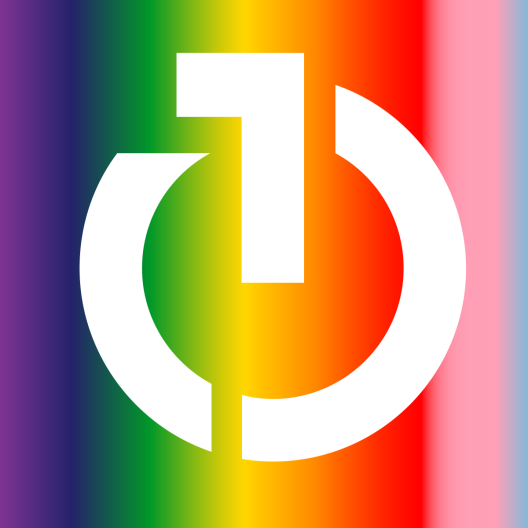
Lifting marginalized voices: insights on historical LGBTQ+ milestones with Nik Dutt
Interviews
Nik Dutt, Product Marketing Manager at The Trade Desk, spoke to myGwork about the most significant historical LGBTQ+ events to commemorate this month. From the emergence of voguing to LGBTQ+ representation in politics, Nik highlights key areas of history that are often overlooked, in an ongoing effort to uplift marginalized voices and empowering moments.

Thanks for chatting to us, Nik! To start with, please tell us a bit about yourself.
My name is Nik (he/him) and I am a Product Marketing Manager at The Trade Desk. I joined the company three years ago. My heritage is a mix from all over the world (India, Afghanistan and even Ireland!) but I was born in Hamburg and moved to London at the age of 11. I’m very excited to partner with myGwork to advocate for LGBTQ+ rights and give minority groups a platform to feel heard and seen in the workplace.
So, how would you define LGBTQ+ History Month, and why do you think it is important to have a designated month to highlight and celebrate LGBTQ+ history?
Why do we have a whole month dedicated to celebrating Christmas, Heritage Months or even birthdays? Like extending our curiosity to learn and celebrate a religious holiday or cultural event, LGBTQ+ History Month is a time to come together with our friends, chosen families and loved ones to celebrate the struggles and milestones of those who have paved the way before us. It is a time when we can bring hope to those who feel disheartened and provide comfort to those who are anxiously anticipating what’s to come. Personally, it’s a time for me to educate myself on LGBTQ+ history and help spread awareness, understanding, and empathy in order to help combat stereotypes, prejudice, and discrimination.
Can you share any significant historical events or milestones within the LGBTQ+ community that you feel are important for people to be aware of during this month?
The Stonewall Riots in 1969, the declassification of homosexuality as a mental illness, and the establishment of Pride Month are probably the most notable milestones within the Western community. These moments have shaped the way we live today and have helped build a platform to understand each other with more compassion. But it’s also important to reflect on global moments that we don’t usually hear about – such as the hurdles and challenges that all lead to and shape the way we think about this month today. One such example was when Sarah Hegazi, an Egyptian socialist, writer, and lesbian activist died by suicide after being imprisoned for waving a rainbow flag at Mashrou’ Leila’s concert in 2017. When India decriminalized homosexuality in 2018, it marked a significant moment in history, even though same-sex marriage remains illegal, preventing equal rights and benefits to same-sex couples in India.
Another painful moment was when Nisha Ayub was imprisoned in 2000 for simply expressing herself with clothing and forced to serve a prison sentence in a male-only institution in Malaysia. These are the struggles we don’t often have to face in Western countries because we are protected by law - a privilege a lot of people in the global community don’t have. Ireland was the first country to legalise same-sex marriage through a popular referendum, with more than six in ten voters in favour, and later appointed their first openly Irish Indian gay prime minister in 2017. I’m sure this didn’t come without challenges, but I feel like this has significantly shifted the paradigm, especially around legal support for individuals facing discrimination in Europe today. It’s something we should continuously strive for, across the rest of the globe.
Are there any lesser-known figures or moments in LGBTQ+ history that you believe deserve more recognition and attention?
Voguing did not start with Madonna – it started as early as the ballroom scene in the 1800s with William Dorsey Swann and this art rose to fame in the 1970s and 1980s. When people like Will Ninja and Paris Dupree brought it to mainstream culture in ‘Paris is Burning’, they became modern pioneers of vogueing. Expression in this form of art remains one of the most iconic celebrations of the culture, especially for marginalized communities.

How does the celebration of LGBTQ+ History Month intersect with other areas of social justice and activism?
LGBTQ+ History Month is not just a celebration of people who dared to live authentically but also recognizes intersecting oppressions based on ability, race, ethnicity, gender identity, socioeconomic status, and more. I mentioned some of these things already, but education around these topics is key. I feel like the more we incorporate these things into curriculums and highlight the rich history within educational institutions as common practice, the more supportive and empathetic we become.
What advice would you give someone wanting to learn more about LGBTQ+ history?
Stay curious! The fact that you’ve made it so far down this article is a good sign – I would encourage everyone to stay informed of key events around the community and look up the people I’ve mentioned as well as Marsha P. Johnson. Take time to listen to the stories, challenges, and perspectives of the LGBTQ+ community through your friends, siblings, family or colleagues - or through books, TV shows or movies.
There are a number of authors writing history as we speak. POSE, Looking and It’s a Sin were all great binge-worthy things I watched. One of my favourite books called A Dutiful Boy by Mohsin Zaidi explores a very honest story about Mohsin’s own experiences growing up in a religiously conservative household and exploring the challenges that come with accepting his sexuality.

